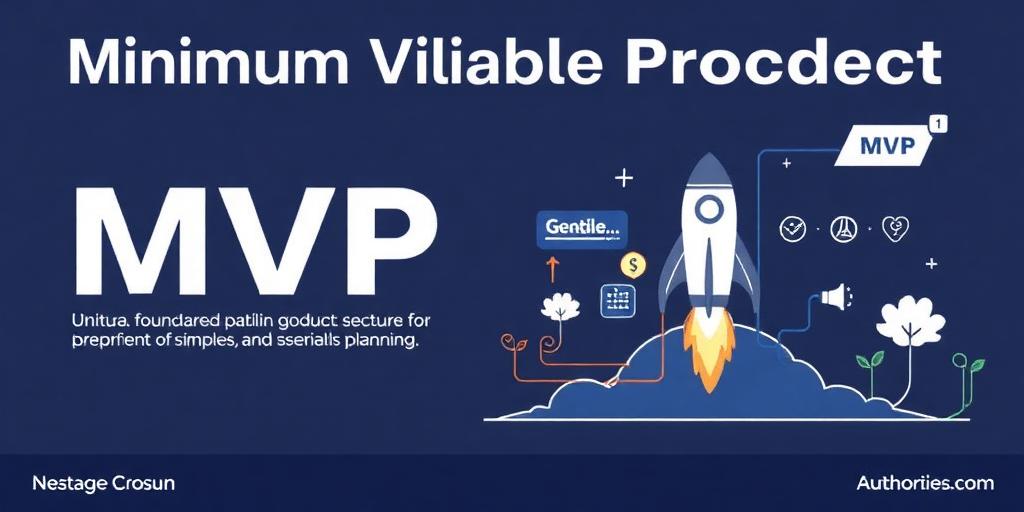In the competitive landscape of modern product development, the concept of a Minimum Viable Product (MVP) has evolved from a buzzword into a strategic imperative. An MVP represents the version of a new product that allows a team to collect the maximum amount of validated learning about customers with the least effort. This approach is not merely about launching faster; it is fundamentally about de-risking ventures, optimizing resource allocation, and ensuring market alignment from the outset. This article delves into the critical reasons why building an MVP is indispensable for sustainable innovation and market success.The Foundational Pillars of MVP Development### 1. Validating Core Assumptions with Minimal InvestmentOne of the primary benefits of MVP development is its capacity to validate fundamental business hypotheses. Before committing substantial resources to a full-scale product, an MVP allows innovators to test their core value proposition directly with target users. This early validation of product-market fit is crucial; it prevents the costly development of features or even entire products that ultimately fail to resonate with the market. By focusing on essential functionality, teams can gather concrete data on user interest and behavior, confirming or refuting initial assumptions about customer needs and preferences.### 2. Mitigating Risk and Optimizing Resource AllocationTraditional product development models often entail significant upfront investment and prolonged development cycles before market exposure. This approach carries inherent risks, particularly the potential for substantial financial and time losses if the product does not succeed. Building an MVP inherently mitigates these risks. By launching a lean version, companies can identify flaws, pivot strategies, or even abandon non-viable concepts early, thereby conserving valuable capital, time, and human resources. This strategic conservation allows for more agile and responsive deployment of resources where they are most effective.### 3. Accelerated Time-to-MarketThe swift deployment enabled by an MVP provides a significant competitive advantage. Rapid market entry allows businesses to capture early adopters, establish brand presence, and gain a foothold before competitors can react. Furthermore, by getting a functional product into users' hands sooner, companies can begin to build a loyal customer base and generate initial revenue streams much earlier than through a protracted, feature-rich launch. This acceleration is particularly vital in fast-paced industries where market windows can be fleeting.### 4. Facilitating Early User Feedback and Iterative ImprovementAn MVP serves as a tangible platform for engaging with real users and soliciting authentic feedback. This direct interaction is invaluable. It moves beyond theoretical market research, offering insights into actual user experience, pain points, and desired features. Such early feedback loops are essential for iterative development, allowing teams to refine the product based on genuine user needs. This continuous feedback cycle ensures that subsequent product iterations are guided by data-driven insights, leading to a product that is increasingly aligned with market demand.### 5. Enhancing Fundraising and Investor ConfidenceFor startups seeking investment, an MVP is a powerful tool. It transforms abstract ideas into a concrete, testable product that demonstrates vision, execution capability, and early market traction. Investors are increasingly wary of funding concepts without tangible proof points. An MVP, especially one that shows user engagement or early revenue, provides compelling evidence of potential viability, significantly enhancing a startup’s appeal and confidence from potential funders. It showcases not just what the product could be, but what it is and can do right now.The strategic importance of building a Minimum Viable Product cannot be overstated. It is a disciplined approach that champions efficiency, reduces risk, and fosters a deep understanding of the market through validated learning. By embracing the MVP philosophy, organizations can navigate the complexities of product development with greater agility, focus, and a higher probability of achieving sustainable success. It is not merely a development phase but a fundamental mindset for achieving true innovation in a dynamic marketplace.
BREAKING
The Importance of Building a Minimum Viable Product (MVP)
Discover the critical importance of building a Minimum Viable Product (MVP) for validating ideas, mitigating risk, and accelerating market entry in modern product development.
14 September 2025

The Importance of Building a Minimum Viable Product (MVP)








